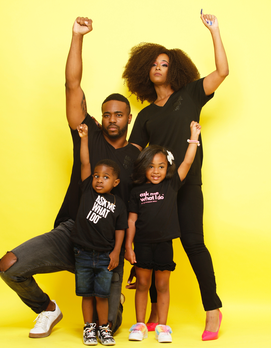 Almost everyone is on social media. Trends over time show that the use of social networking sites such as Instagram, TikTok, and Facebook has continued to increase (Turner et al., 2021). However, the reasons for this increased use vary by individuals—especially with regard to demographics. For millennials and older generations, the use of social media may be primarily for staying connected with family and updated on current events. On the other hand, teens may use these platforms for different reasons. For example, the Pew Research Center notes about 46 percent of teens say they use social media for socializing and staying connected. Additionally, approximately 68 percent of teens say that social media helps them feel like they have people that can support them through tough times, with only 9 percent reporting that social media has had a negative impact on them (Pew Research Center, 2022). Of those who report negative effects, 16 percent of Black teens, 22 percent of White teens, and 28 percent of Hispanic teens endorsed feeling worse about their own life. What the Research Says About Social Media Use A recent meta-analysis (Huang, 2022) found that problematic social media use was associated with distress (e.g., depression and loneliness). However, the majority of the studies currently focus on Facebook. One study that explicitly examined body image concerns found that females (84 percent) were more likely than males (16 percent) to report social media-related body dissatisfaction (Charmaraman et al., 2021). Additionally, teens in that study who endorsed body dissatisfaction endorsed checking their social media more often, experiencing symptoms of anxiety and depression, and spent most of their free time alone. It is clear that we need to better understand the nuances of social media use and how it impacts teens. The way that social media impacts teens’ mental health varies from person to person. One study noted that after passive social media use (i.e., scrolling your friends' content without direct exchanges) 46 percent reported feeling better, 10 percent reported feeling worse, and 44 percent reported not feeling better or worse (Beyens et al., 2020). According to the Pew Research Center, 59 percent of teens believe that social media has neither positive nor negative effects on them, while 32 percent say that social media is mostly positive. Clearly, the data is mixed and individual differences exist in how teens are impacted by social media use. Tips for Parents on Minimizing Problematic Social Media Use for Teens Given what we know about the potential impacts of social media use and how much screen time contributes to health and mental health outcomes, it is important for parents to help their teens practice digital wellness. While parents may differ on how much or little they control their teens' access to social media, here are a few effective strategies to help minimize risks.
Note: This blog was originally written by Dr. Erlanger Turner for Psychology Today.  Decades of research have explored how racism affects the mental health and functioning of Black children. In an article published in the Journal of Clinical Child and Adolescent Psychology, the authors discuss that Black youth may experience discrimination and racism but still be resilient and experience positive outcomes (Jones & Neblett, 2017). The question that may come to mind is “how can someone experience racism and not have negative effects such as depression or low self-esteem”? Psychology researchers have discussed the importance of having the “race talk” or engaging in racial-ethnic socialization (RES) for many years. RES involves teaching children about their racial and ethnic heritage, as well as, preparing them to cope with discrimination (Hughes et al., 2006; Jones & Neblett, 2017). The article by Jones and Neblett (2017) demonstrates that engaging in racial and ethnic socialization improves academic performance, decreases depression symptoms, reduces problem behaviors, and provides positive racial identity attitudes among Black youth. By talking with children about racism, researchers note that Black parents prepare their children to overcome adversity by “challenging stereotypes and allowing Black youth to view their racial identity more positively” (e.g., Jones and Neblett, 2017). Recently, several events in society have provided some examples to promote racial pride among Black youth. For example, Judge Ketanji Brown Jackson is the first Black woman to be nominated to serve on the US Supreme Court (See article on NBC News). Although RES also focuses on preparing kids to deal with or experience racism, parents should be sure to teach children positive aspects of their identity such as notable figures, cultural holidays, and important family traditions. Ways to Promote Racial Socialization There are many ways to promote racial socialization. The American Psychological Association released a tool-kit to help parents engage in healthy communication about race and racism. This resource is particularly important given the continued rise of racism and discrimination in America. Here are a few tips to consider: 1. Be prepared to manage your emotions and help your child cope.
Note: A version of this post was authored by Erlanger A. Turner, Ph.D. for Psychology Today. Sources: Hughes, D., Rodriguez, J., Smith, E. P., Johnson, D. J., Stevenson, H. C., & Spicer, P. (2006). Parents' ethnic-racial socialization practices: a review of research and directions for future study. Developmental Psychology, 42(5), 747-770. Jones, S. C., & Neblett, E. W. (2017). Future directions in research on racism-related stress and racial-ethnic protective factors for Black youth. Journal of Clinical Child & Adolescent Psychology, 46(5), 754-766. Photo by My Networking Apparel on Unsplash |
This blog is maintained by Therapy for Black Kids. Archives
June 2023
Categories
All
|
 RSS Feed
RSS Feed